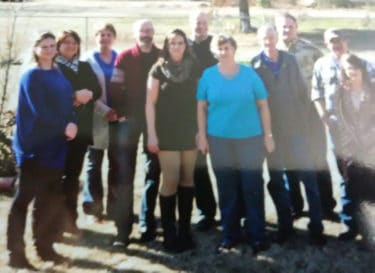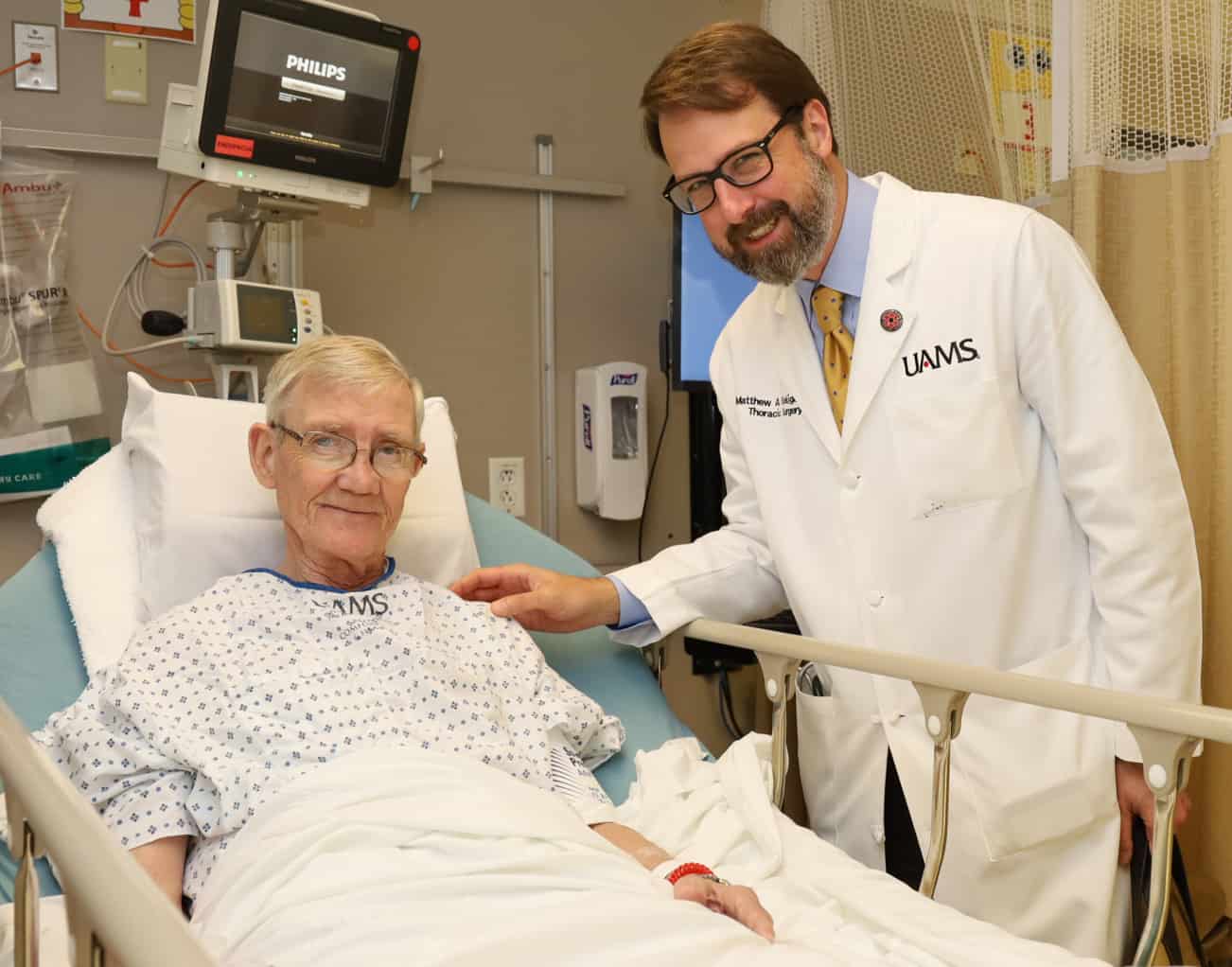Eight-Year Survivor of Two Deadly Cancers Thanks ‘Guardian Angel’
| The night before his cancer surgery in April 2011, Michael McGhee asked his church family to pray for him.
“I laid my cigarettes on the altar and didn’t pick them up again,” McGhee said.
Eight years later, McGhee is 72 and has survived not one, but two, cancers that are often deadly: esophageal cancer and lung cancer. He and his wife, Betty, recently reunited with the UAMS surgical oncologist who performed both surgeries, Matthew Steliga, M.D.
“That’s fantastic,” Steliga said. “A lot of people who go through cancer surgery have a history of smoking, and we work very hard to get them off the cigarettes and get them well. Your commitment to quitting probably helped you get through everything that came after more safely and smoothly.”

Michael and Betty McGhee are pictured with their children: Mark, Michelle, Anita, Lynn, Melissa, Chris and Kevin.Submitted Photo
In 2011, McGhee noticed that his chronic acid reflux was even worse and that he was beginning to have difficulty swallowing. He saw his gastroenterologist, who found the esophageal cancer and referred him to UAMS. Steliga specializes in thoracic oncology with an emphasis on lung cancer, esophageal cancer and other tumors of the chest and is experienced in minimally invasive surgery.
Steliga discovered that McGhee’s cancer was early and hadn’t spread. He removed the cancer and rebuilt McGhee’s esophagus using part of his stomach.
Then it was time to watch and wait.
Surveillance is a routine part of treatment for patients with many types of cancer. They come in for checkups and scans for several years after the initial diagnosis to make sure their cancer doesn’t come back or reemerge in a different part of the body. Pat Franklin, APRN, works closely with Steliga and played a major role in McGhee’s surveillance care.
A few years after his esophageal cancer, the surveillance scans revealed a new spot on McGhee’s lungs. A biopsy was unable to reveal if the spot was cancerous or benign.
“He said, ‘you go in and take that thing out,’” Betty McGhee said. “And that’s exactly what he did. After the first cancer, we said we weren’t going to mess around with it. So he took it out, and yes, it was cancerous.”
Steliga used thoracoscopy, a minimally invasive surgery, to remove the cancerous spot in April 2014. Test confirmed that it was a new and separate cancer from the esophageal cancer, and that it too had been caught early.
Both esophageal and lung cancer are difficult to treat and often lead to death. To survive eight years — as Michael McGhee has — is rare.
“It’s a real inspiration to see people years and years out still going strong,” Steliga said. “As you can imagine, not all stories in oncology have a good outcome. In this case, Mr. McGhee has a little bit of luck to thank that we caught both cancers early, but he can also thank his own proactive behavior. He noticed symptoms and sought treatment. He stopped smoking. He kept up with the surveillance care.”
Betty McGhee said parts of the road were long and hard. Her husband was in the hospital for more than 30 days. He was on a feeding tube at home for three months. It took longer than he would have liked to regain the ability to eat normal foods. He still struggles with pain and stomach issues.
Still, they feel lucky. He never had radiation or chemo, for one, Betty said.
“And every step of the way, Nurse Franklin and Dr. Steliga have been by our side,” Betty said. “Nurse Franklin helped us with so many things. She is always just so responsive, and that meant the world to us. Her help relieved so much of our stress.”
“She’s my guardian angel,” Michael said. “I can never say enough about her, Dr. Steliga and my wife. They are what got me through this.”
